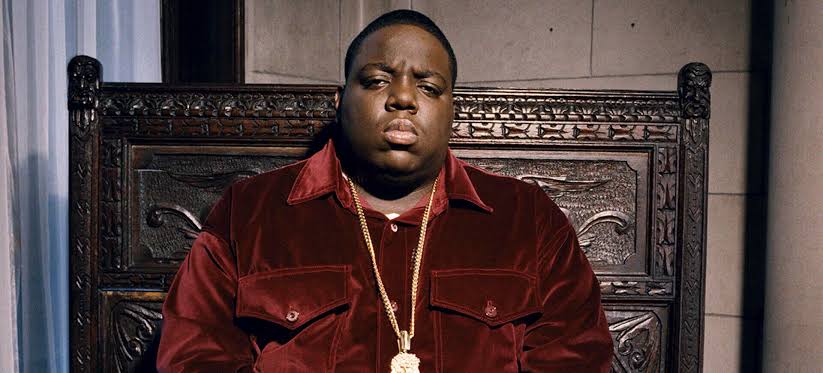The Rise of The Notorious B.I.G.
The Notorious B.I.G.: A King-Sized Legacy in Rap
The Notorious B.I.G., or Biggie Smalls as he was also known, wasn’t just a rapper; he was a cultural phenomenon. Born Christopher Wallace in 1972, Biggie’s life story intertwined with the rise of East Coast hip hop in the 90s. Though his career was tragically cut short in 1997, his music continues to resonate with fans worldwide.

“It was all a dream / I used to read Word Up! magazine”
The quote is:
One of The Notorious B.I.G.’s most famous quotes comes from his song “Juicy,” where he reflects on his journey from struggle to success.
From Brooklyn Streets to Rap Royalty
Biggie’s lyrics painted vivid pictures of his experiences growing up in Brooklyn’s rough streets. He didn’t shy away from the realities of gang violence and the drug trade, but he also weaved in humor, braggadocio, and a surprising vulnerability. His signature deep voice and smooth flow delivered tales of hustling and ambition, capturing the struggles and aspirations of a generation.
Biggie’s debut album, Ready to Die (1994), was a game-changer. It revitalized the East Coast rap scene and cemented Biggie’s status as a superstar. Tracks like “Big Poppa” showcased his charisma and playful swagger, while “Juicy” offered a glimpse into his rise to fame, full of nostalgic charm. Songs like “Mo Money Mo Problems” (featuring Puff Daddy and Mase) became anthems, blending catchy hooks with social commentary.
Biggie’s impact goes far beyond chart-topping hits. His storytelling ability and raw lyricism set a new standard for rap. He influenced countless rappers who followed, from Jay-Z and Nas to The Weeknd and Kendrick Lamar. His music continues to be sampled and referenced, a testament to its enduring quality.
The Notorious B.I.G.’s legacy is one of raw talent, captivating storytelling, and an unmatched flow. He turned his harsh realities into rhymes that resonated with millions. Though his time was short, Biggie’s music continues to inspire and entertain, solidifying his position as one of hip hop’s true kings.
Tragically, The Notorious B.I.G.’s life was cut short when he was murdered in a drive-by shooting in Los Angeles on March 9, 1997. His second album, “Life After Death,” was released posthumously just two weeks later. The double album was an immediate success, debuting at number one on the Billboard 200 and eventually achieving diamond certification.
“Life After Death” features some of Biggie’s most celebrated work. “Hypnotize” is a masterclass in lyrical dexterity and charisma, with its catchy hook and slick production. “Mo Money Mo Problems,” featuring Puff Daddy and Mase, became another chart-topping hit, blending Biggie’s verses with a polished, radio-friendly sound.
The Notorious B.I.G.’s influence extends far beyond his discography. He is often credited with revitalizing East Coast hip-hop during a period when the West Coast dominated the genre. His storytelling technique has influenced countless artists, and his lyrics are frequently quoted and referenced in popular culture.
Biggie’s legacy is also preserved through various posthumous releases, tributes, and biographical works. The 2009 biopic “Notorious” brought his story to a new generation of fans, while documentaries like “Biggie: I Got a Story to Tell” delve deeper into his life and impact.
In the pantheon of hip-hop legends, The Notorious B.I.G. occupies a place of honor. His music continues to inspire and entertain, reminding us of his extraordinary talent and the indelible mark he left on the world. As hip-hop evolves, Biggie’s influence remains a constant, a testament to his enduring genius and the timeless quality of his artistry.